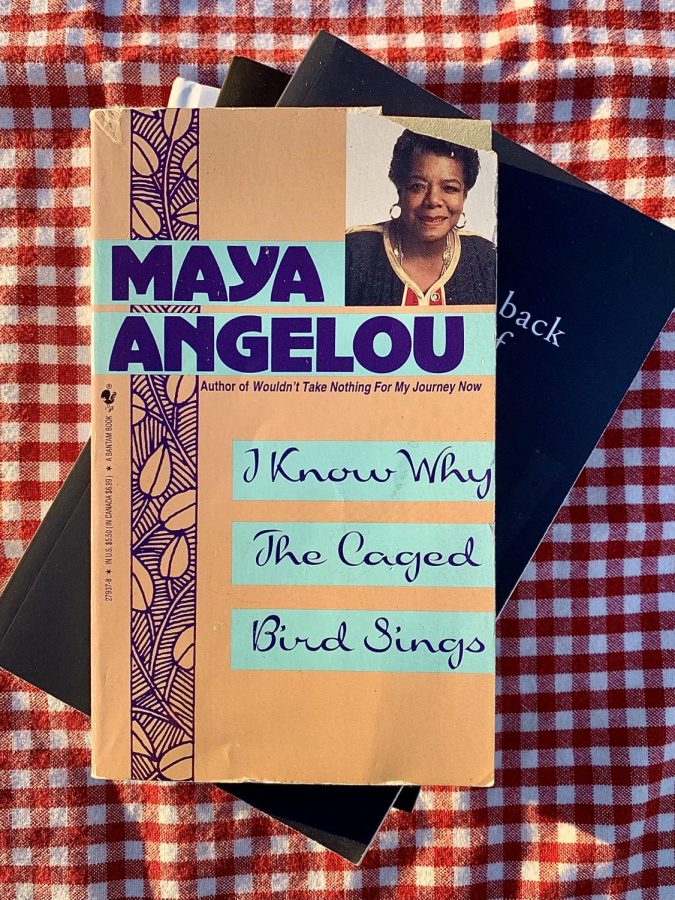It is well known that art forms the heart of America. Whether through movies, music or written media, art is often what binds us together during those times – like the present – when it would be so easy to fall apart.
Last month’s Presidential Inauguration cast light on artistic individuals from across the nation, but one of the most memorable performances came from Amanda Gorman, the Inaugural Youth Poet Laureate of 2017, now Inaugural in more ways than one. Gorman captivated audiences with a breathtaking performance of her poem, “The Hill We Climb,” a profound dedication to hope amidst despair.
Before Gorman, one of the biggest names in poetry was (and remains) Maya Angelou. She, too, recited at a Presidential Inauguration – President Bill Clinton’s in 1993. Years and years before Maya Angelou, young African-American poet Phillis Wheatley was turning heads, rising to prominence during the American Revolution.
It is important to reflect upon the deep roots of Black female poets in American history because, historically, much of the criticism they have received has been predicated on their race rather than their artistic prowess. However, each of these women (and many more beyond them) have had radical impacts on the world through their art and their philosophies:
Phillis Wheatley may not have recited at an Inauguration, having lived between 1753 and 1784 as an enslaved woman in New England, but she is still deservingly heralded as one of the greatest American poets to grace the nation. Born in Africa, Wheatley was brought to America and forced into slavery in 1761. She began publishing poetry at the age of 13. In 1773, she became the first African-American and second woman to publish a book of poetry – at which point she was released from slavery.
Wheatley wrote on various topics, espousing both praise for the American fight for independence – she once had personal correspondence with George Washington, gifting him a poem she had written lauding his military accomplishments – and careful criticism for the continuance of slavery.
During her lifetime, and in the years since, Phillis Wheatley’s poetry has had a global impact on racial attitudes, helping to detract from popular perceptions of white supremacy and the narrative that Black individuals were somehow of lesser intelligence than white individuals.
Maya Angelou, one of the leading literary figures of the 20th century, a woman internationally renowned for her writing, activism and artistic talent, was revolutionary in her own right. Her famed autobiography “I Know Why The Caged Bird Sings,” published in 1969, was the first non-fiction bestseller written by an African-American woman and has long been considered a global literary classic.
Angelou’s intensely personal writings, unique poetic style and unequivocal conviction in all areas of her life were reflected throughout her every undertaking. An unwavering and outspoken activist, Angelou fought tirelessly for civil rights, gender equality and racial justice. Not only did she transform the social-political landscape of America; she helped to create it, to make it what it is today.
Maya Angelou, through her writings, activism and unabashed honesty about her experience as a Black woman in America, has had an incredible influence on today’s artistic scene. She worked tirelessly and unapologetically against injustice during her lifetime. She continually threaded her desire for, and belief in, a more just world into her art. Her legacy not only survives but thrives beautifully to this day.
Amanda Gorman, a still-rising poet on the literary scene, has already made a name for herself – first as the Inaugural Youth Poet Laureate in 2017, and now as a Presidential Inaugural Poet with the reading of her newest piece, “The Hill We Climb” at last month’s Presidential Inauguration.
Gorman’s poem was given and received with a deep sigh of relief. Her words spoke not only to the overwhelming fear that had consumed the nation since the insurrection of January 6th but also to the despair many of us have felt about the fragile state of our country amidst rising social-political tensions and a harrowing, continuously mismanaged, pandemic.
In “The Hill We Climb,” nothing could be clearer than Amanda Gorman’s conviction and hope, desire to make the world and our country better, and unwavering belief that together we can create the free nation that was first idealized in our own constitution.
These three poets all often wrote on the same idea, that we as a country can ascend to the level of greatness we have always pretended to reach if we would only work together to get there.
The principle that we are, individually and collectively, in control of our own creation is one of the most stereotypically American ideas out there. It is the hope that gets us all through our own, often uniquely-American, hardships; it is a desire for agency, for a say in our lives, and for a reason to continue to hope.
Art will continue to be made, continue to shape our country and continue to make it better. On Inauguration Day, Gorman’s speech did just that, by giving people hope. The importance of hope, and of continually striving for better, can be best summarized by Gorman’s own words, from a snippet of her now-historic poem: “Being American is more than a pride we inherit / it’s the past we step into / and how we repair it.”
Riley Martinez is a sophomore studying humanities, classics and interdisciplinary studies.










